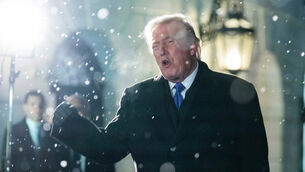Divisions emerge about Iran's nuclear ambition
Europe and the US agreed to moves to curb Iran’s nuclear ambitions tonight, but divisions emerged with so-called non-aligned nations objecting to parts of the text.
A majority of nations at a key meeting of the UN atomic watchdog agency in Vienna agreed on the wording of a draft resolution meant to curb Iran’s access to technology that could be used to make nuclear weapons.














